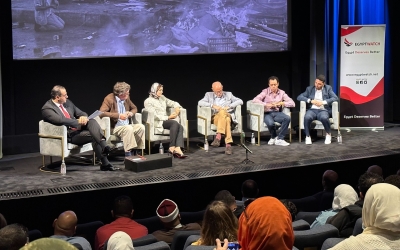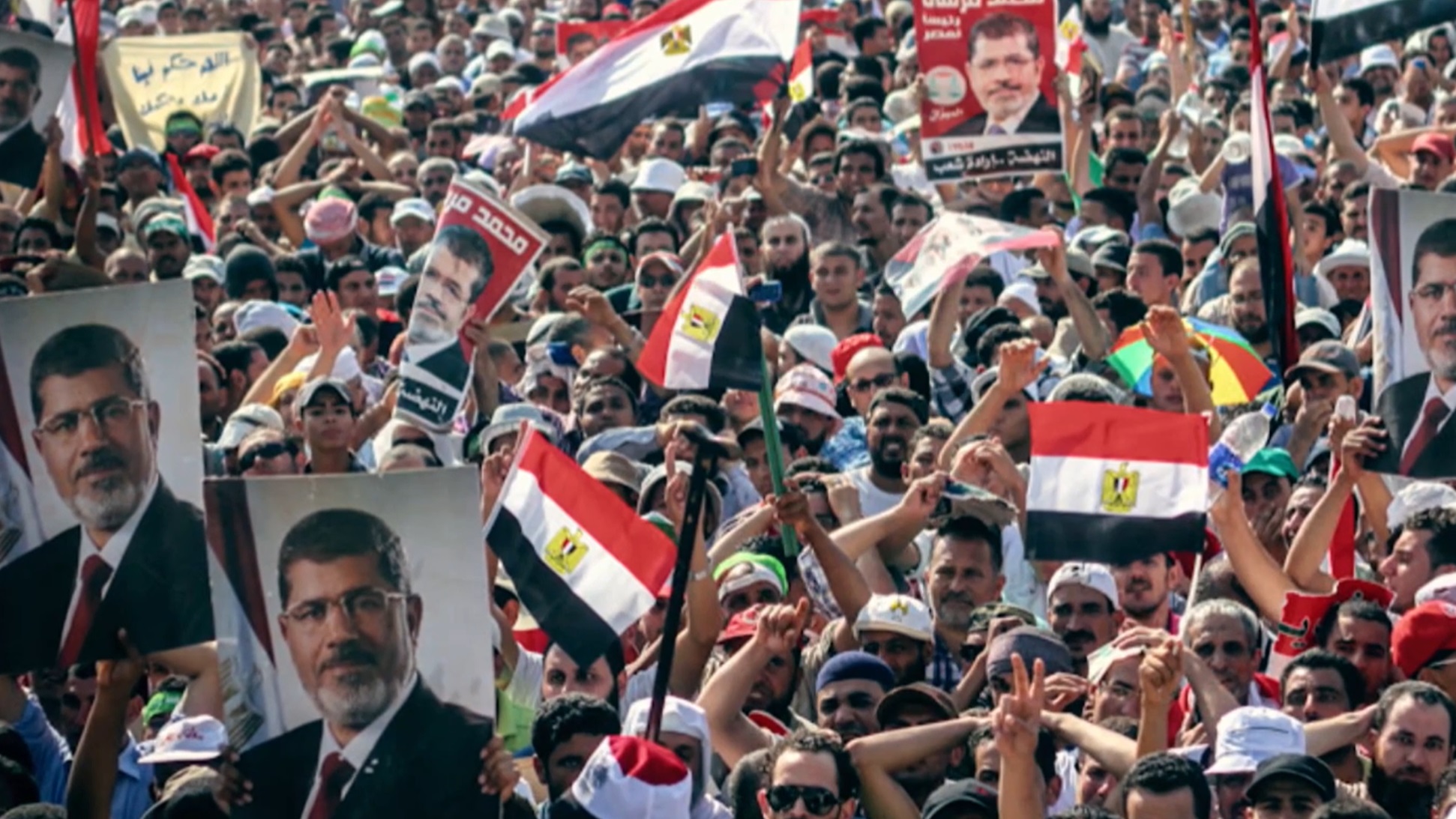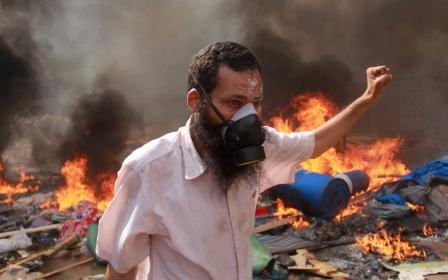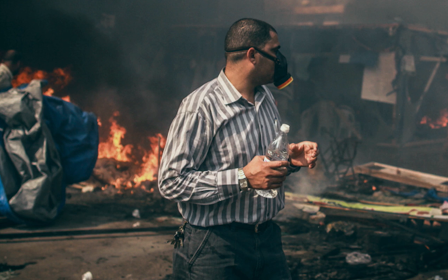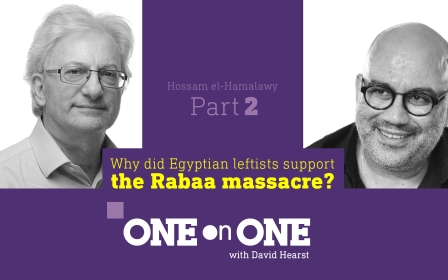Memories of a Massacre: Documentary about Rabaa killings set for general release
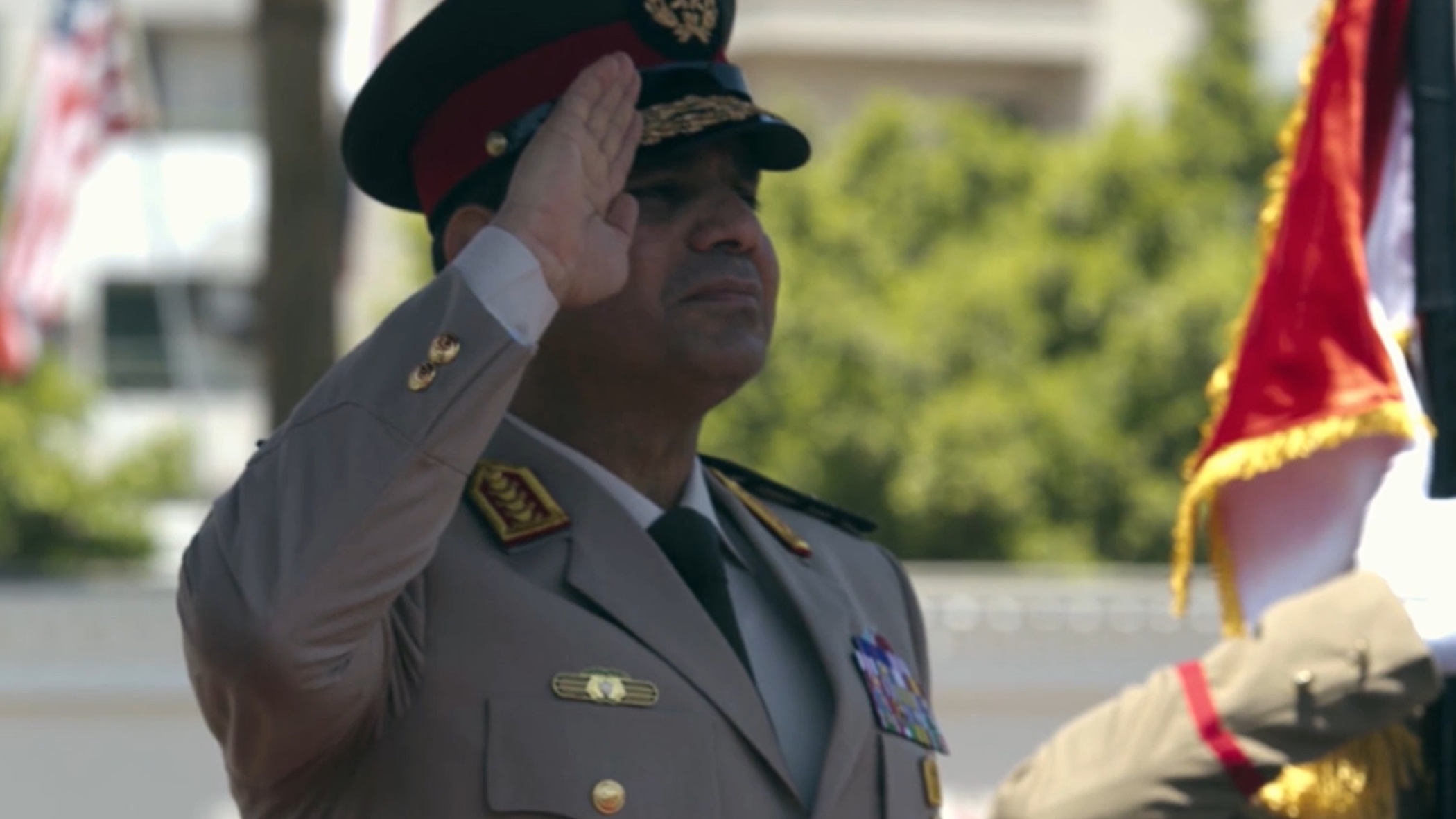
A film about the worst massacre in modern Egyptian history is set for release on streaming platforms later this month.
Nicky Bolster's documentary about the 2013 Rabaa massacre, titled Memories of a Massacre, is available for order on Apple TV and Prime Video, as well as other platforms on 20 February.
At least 900 people were killed when Egyptian soldiers and police officers fired on protesters demanding the return of then-President Mohamed Morsi on 14 August 2013.
Morsi had been overthrown and arrested in a coup organised by his defence minister and army chief, Abdel Fattah el-Sisi, a month earlier.
After Morsi was deposed, Rabaa al-Adaweya Square in the district of Nasr City in Cairo became the focus of anti-coup protests, with Morsi's supporters setting up camp in the area.
New MEE newsletter: Jerusalem Dispatch
Sign up to get the latest insights and analysis on Israel-Palestine, alongside Turkey Unpacked and other MEE newsletters
Many of those present belonged to Morsi's Muslim Brotherhood organisation, while others were pro-democracy activists, including those who had previously opposed Morsi.
Sisi, the country's de facto ruler after the coup, declared his intention to clear the protest camp and later unleashed his armed forces on the protesters resulting in a bloodbath.
Looped pre-recorded warnings about the imminent dispersal were played through loudspeakers only moments before the attack. The first warning for many was the firing of live ammunition.
Years later, a report by Human Rights Watch found evidence that authorities had planned the mass killing. The film's footage attests to this, with images of carefully positioned snipers lining the tops of buildings around the square and helicopters firing from overhead.
The film is also notable for its impressive cast of interviewees, which include eyewitnesses and relatives of those killed, as well as former US officials, journalists and activists.
Ben Rhodes, the former deputy national security advisor to former President Obama, summarises the way Sisi and the coup plotters had predicted correctly that there would not be US opposition to Morsi’s overthrow.
Rhodes draws the line between that lack of action and the eventual massacre at Rabaa Square.
"It was one of the most disappointing, depressing, angering experiences because we as a government had made the decision that we weren’t going to push back against the fact of this coup, and now we’re seeing the most acute consequences of it," Rhodes recalls in the film.
Despite such high-profile appearances, the core of the documentary remains the experiences of those who lost loved ones during the bloodshed.
A key focus of Bolster's film is on the deaths of 17-year-old Asmaa el-Beltagy and Sky News cameraman Mick Deane.
Their killings, one a daughter of a senior member of the Brotherhood, and the other a journalist from England, symbolise the indiscriminate nature of the volleys of gunfire unleashed by the Egyptian security forces.
Initially released for closed viewings on the tenth anniversary of the massacre in August last year, the general release makes Memories of a Massacre one of the few available English language testaments to the killings.
Middle East Eye delivers independent and unrivalled coverage and analysis of the Middle East, North Africa and beyond. To learn more about republishing this content and the associated fees, please fill out this form. More about MEE can be found here.


